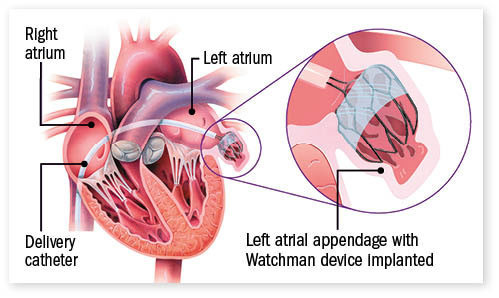
5 timeless habits for better health

What are the symptoms of prostate cancer?

Is your breakfast cereal healthy?

When pain signals an emergency: Symptoms you should never ignore

Does exercise give you energy?

Acupuncture for pain relief: How it works and what to expect

How to avoid jet lag: Tips for staying alert when you travel

Biofeedback therapy: How it works and how it can help relieve pain

Best vitamins and minerals for energy

Should you take probiotics with antibiotics?
Medical Devices & Technology Archive
Articles
Stroke prevention in atrial fibrillation: Beyond anti-clotting drugs
Wearable devices may encourage enough exercise to prevent afib
Screening for atrial fibrillation: An update
Listen to your heart
Wearable fitness trackers may aid weight-loss efforts
Sensing abnormal heart rhythms with a smart speaker?
Treating sleep apnea: Good for your heart and mind?
Implanted heart device? Beware of newer smartphones and wearables
Research we're watching
People who have an implantable cardioverter-defibrillator (ICD) or pacemaker should avoid the iPhone 12 as well as wearable tech products — such as the Fitbit and Apple Watch — that use magnetic chargers. The magnets in these gadgets can interfere with implanted cardiac devices, possibly rendering them useless, say two recent reports.
A 55-year-old woman wearing an Apple Watch while sleeping was awakened by several beeps from her ICD. A next-day check showed the watch's magnet had deactivated her device, as noted Dec. 12, 2020, in HeartRhythm Case Reports. In the Jan. 4, 2021 HeartRhythm, doctors described how bringing an iPhone 12 near the chest of a person with an ICD immediately disabled the device.
5 tips to help you stay safe during medical treatment
Medication errors and communication problems may put people at risk.
It's been 20 years since the Institute of Medicine published its landmark report To Err is Human. It found that as many as 98,000 people were dying each year from preventable medical errors, prompting an industrywide patient safety effort that has spanned the past two decades.
An editorial published in JAMA Dec. 29, 2020, notes that in the years since that report came out, hospitals and doctors have made numerous changes that have succeeded in reducing preventable problems, such as hospital-acquired infections, falls, and medication-related errors. But more work remains to be done. Mistakes still happen.
Smartphone apps and trackers may help boost physical activity
Research we're watching
Surveys show that about one in five Americans uses a smartphone app or tracker for monitoring exercise. Evidence for the benefits of these tools is mixed, but a new review suggests they may encourage people to move a bit more.
Researchers pooled findings from 28 studies involving a total of nearly 7,500 people who took part in studies using a smartphone app or activity tracker. They found that these tools have a small to moderate effect in boosting physical activity, motivating people to take an average of 1,850 additional steps per day.

5 timeless habits for better health

What are the symptoms of prostate cancer?

Is your breakfast cereal healthy?

When pain signals an emergency: Symptoms you should never ignore

Does exercise give you energy?

Acupuncture for pain relief: How it works and what to expect

How to avoid jet lag: Tips for staying alert when you travel

Biofeedback therapy: How it works and how it can help relieve pain

Best vitamins and minerals for energy

Should you take probiotics with antibiotics?
Free Healthbeat Signup
Get the latest in health news delivered to your inbox!
Sign Up











